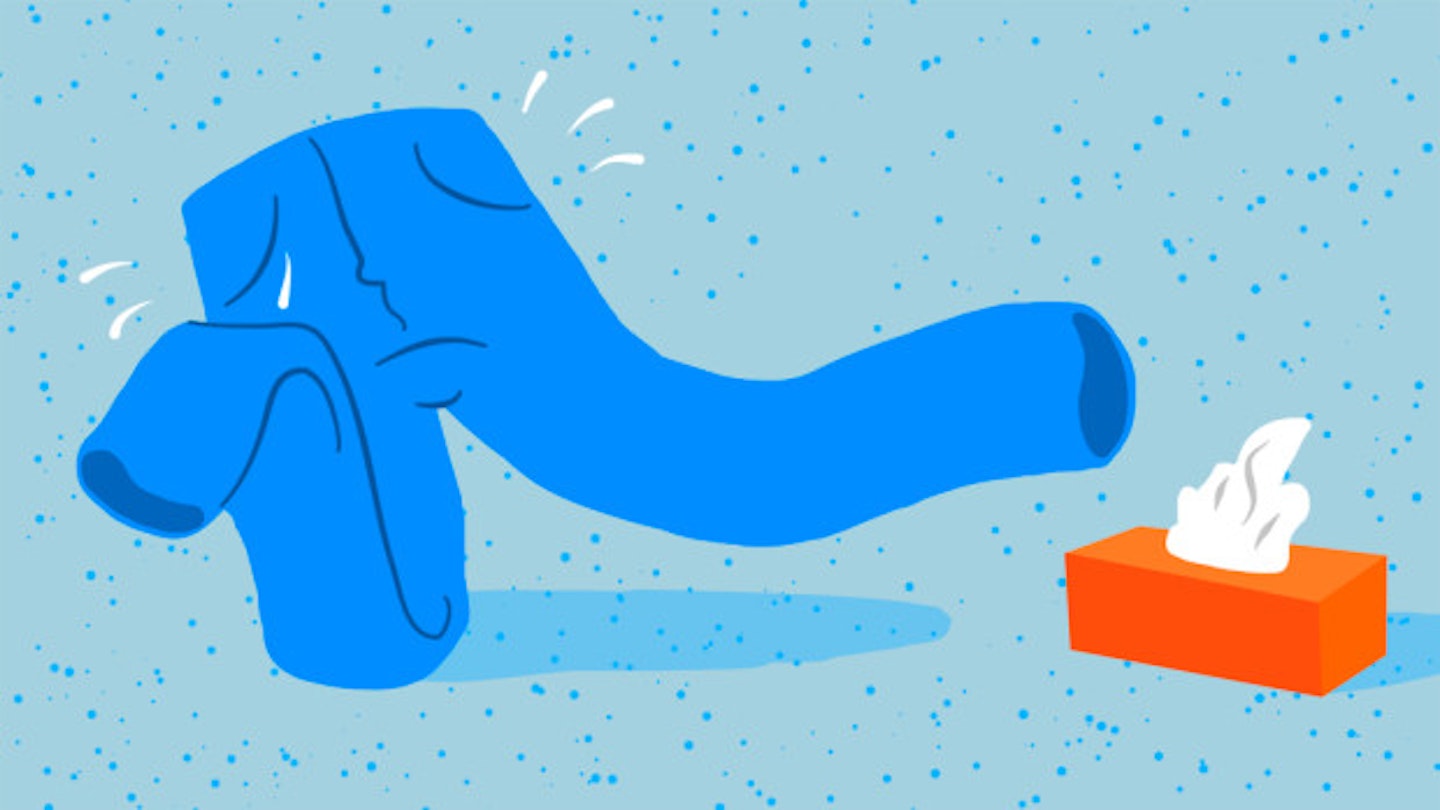Whether you've yanked your thong out the top of them, pulled them down over your skater shoes, stretched them over your fat undergraduate arse or ripped holes in their bleached knees, you will have at some point owned a pair of jeans. Your Mum's got them, your nan's got them... Hey even Robert Mugabe's got a pair he does the gardening in. Why? Because love them or hate them, jeans are arguably the most pervasive fashion item of the 21st century.
This is perhaps why my own relationship with denim is a complex and tortured one. As a chunky thighed chica, I have spent lonely hours in changing rooms sweatily squeezing myself into these stiff blue numbers and cried real human tears because they didn't look good. I've performed flustered squats and lunges in a vain attempt to ensure that the jeans I just bought didn't force my pancake of a bottom to merge with the backs of my legs or send my muffins flowing over the top. I'm not alone in my anguish either. I've seen countless women hoisting themselves into them with pain etched on their faces and borne witness to more winking bum cracks than I'd care to mention.
I've scuttled past towers of the little buggers confidently piled at the front of a shops, wondering when my torment would end. But now a lady called Karen Pine, at Psychology professor from the University of Hertfordshire, is here to have a scientific word with us about our messed up relationship with our jeans.
On a profile of her work in the field of fashion psychology, Pine reveals that the way we feel about our denims had can have a profound impact on our minds. 'Everyone wears clothes, and selecting what to wear is a behaviour that will have a component of psychological motivation behind it. If we can understand more about that, then we may get to know ourselves better, project a better image to the world, and choose clothes that make us feel good about ourselves,' she says.
In her (really fun sounding) research into enclothed cognition (the interplay between what we wear and the behavioural outcomes) Pine has conducted experiments that found women who wore Supermen T-Shirts felt more respected than those who did not and that dressing in more masculine attire made women feel more in control in the workplace. No surprises there then.
But apply the reverse principles of these power dressing examples to our most staple wardrobe item and it seems it's scientifically possible to trap yourself in a sort of normcore rut. Pine even reckons that our attachment to our denim friends is so utterly pedestrian, it can be a sign we're down in the dumps.
'Jeans can signal the wearer hasn't bothered with their appearance. People who are depressed often lose interest in how they look and don't wish to stand out, so the correlation between depression and wearing jeans is understandable. Most importantly, this research suggests it is possible to dress for happiness, but it might mean ditching the jeans,' she advises.
Now we're not entirely buying the certainty of a link between, let's face it, a mental health issue and blue jeans. But it's possible to make the a ballsy argument that jeans have perniciously become far too symbolic in the female psyche. To look great in your jeans is to feel good, which is a tough challenge considering how flaming difficult they are to wear. It's not exactly coincidence that that sad, belly fat cartoon woman holding tape measure is spilling out of her denims. The woman on the Rennie advert isn't sighing and unbuttoning her pyjama pants after a big lunch, and the special K lady isn't forcing herself to eat cardboard cereal so she can squeeze into a cami dress.
When you type how to find the p... into google, 'pair of jeans' trumps 'partner'. Like it or lump it our jeans are culturally significant. But as Pine points out 'they don't suit everyone' - and in those grainy denim grooves lurks a whole world of disappointment. So if your jeans are already making you sad, I can strongly recommend a nice flattering skirt.
Follow Lucy on Twitter @lucyannhancock
This article originally appeared on The Debrief.
